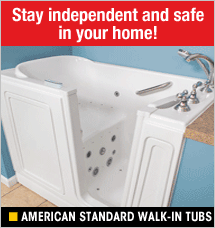Dollar Sense
Make Your Own Final Arrangements: Ease the Burden On Your Loved Ones

It’s hard enough to lose a loved one. Then to also be hit with the high cost of funeral arrangements at such a low point is too harsh, but it happens every day. Now, while there is time, you can make decisions about your final wishes, and possibly even make financial arrangements to cover the cost. One caveat: don’t rush into a prepaid plan without guidance, as there are potential pitfalls.
The cost of a traditional funeral is about $6,000, and with just a few extras, the total can rise easily to $10,000, according to Elderlawanswers.com. Usually funeral arrangements are made during the height of emotion, when we’re vulnerable. Out of love or out of guilt, we end up spending much more than we can afford. That’s why you might want to consider relieving your family of that burden.
That may or may not include financing the funeral yourself. Whether you arrange for payment or not, make decisions, such as cremation or burial, and make your wishes known to someone you can trust to carry them out. That alone can make the loss much easier.
My father recently passed away at age 82. The loss of him was hard, but the decisions were not. He had been very clear that he preferred cremation and did not want a fuss. A few years earlier, my uncle, who was an immensely wealthy man passed away. He had asked his daughter to have his final resting place in a cemetery which overlooks the Pacific Ocean. Because he’d made his wishes known, that is exactly what happened. Again, the loss was hard, but the decisions were not.
The Downside and the Upside of Prepaid Arrangements
If you decide to prepay for your funeral, this can be a wonderful thing to do for your family. But you need to be aware, many scams have been perpetrated on people who thought they were purchasing pre‑need plans.
The funeral industry is governed by what is known as the Funeral Rule, enforced by the Federal Trade Commission. However, the Funeral Rule doesn’t apply to some pre‑need contracts, since they are governed solely by state law, and the laws vary by state.
Attorneys sometimes recommend buying a prepaid funeral, as a legitimate way to deplete your assets if you need to qualify for Medicaid. In that case, ask the attorney to check out the stability of the funeral home you choose, to ensure they are financially stable and not likely to go out of business before you need the plan.
Also, Elderlawanswers.com advises that you get a written assurance that the price you pay is locked in, and that no additional money will be charged at the time of your death.
Other Ways to Ease the Burden Without Prepaying
If you are nervous about losing your pre‑need funds, you could simply decide what you want, such as cremation instead of burial. Put your wishes in writing and let family members or trusted friends know where these documents are. And, you could provide the necessary finances without investing in a pre‑need plan.
- End‑of‑ Life‑Planning Insurance. You could purchase a final expense insurance policy to cover funeral costs and other final expenses. It’s also called pre‑need insurance or end‑of‑life planning insurance. This insurance is similar to whole life insurance (as opposed to term insurance), and usually ranges from $5,000 to $25,000. Many people buy a policy that is enough to cover not just the final expenses, but to also cover specific debts or obligations.
The proceeds of this type of policy remain fixed and guaranteed. Generally, the only way this policy can be canceled is if you choose to cancel it by failing to pay the premium, or if there was some element of fraud in the purchase.
- POD Account. Another possibility is to set up an account at your bank which is known as a “payable on death,” or POD account. The beneficiary of the account is the person you would entrust to handle your final arrangements. You retain control of the money during your lifetime, yet when you die, the account is not subject to probate.
However, you cannot use a POD account to shortchange your creditors or your family (according to Nolo.com which seeks to provide consumers and businesses with answers to legal questions.). If you don’t leave enough assets to pay your debts and taxes or to temporarily support your spouse and minor children, creditors and your family can make claims against a POD account. Also, if you live in a community property state, your spouse will likely own a half‑interest in the account, even if it you purchase it in your name only.
Suppose you name someone other than your spouse as the beneficiary of the POD account. If you do this, Nolo.com recommends you get your spouse’s written consent. Otherwise your spouse could claim half the money in the account (in a community property state), leaving the beneficiary with half the amount needed to carry out your wishes.
The beneficiary of the POD account has no claim on the money while you are living. After you pass on, all he or she has to do to receive the proceeds of a POD account is to present a certified copy of the death certificate, and his or her proof of identity. There might be a short waiting period, but the money will not enter probate.
If you are concerned about finding an ethical funeral provider, contact the Funeral Consumers Alliance, available in every state. Find them at funerals.org.
You can receive a free booklet (by computer) from the Federal Trade Commission called, “Shopping for Funeral Services.” This booklet provides guidance as you make decisions. Log onto ftc.gov and type in the name of the booklet.
Teresa Ambord is a former accountant and Enrolled Agent with the IRS. Now she writes full time from her home, mostly for business, and about family when the inspiration strikes.




























































